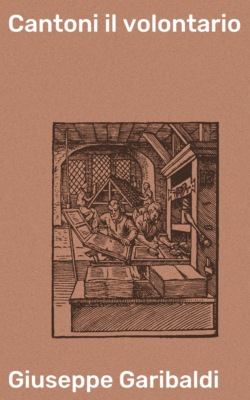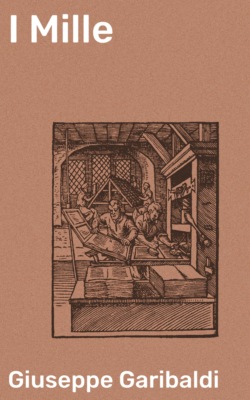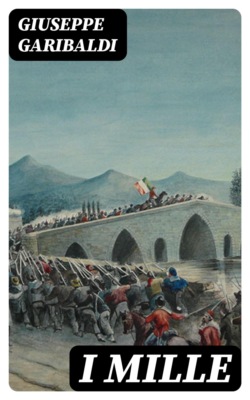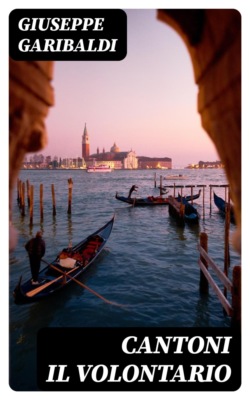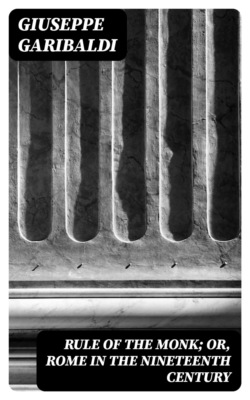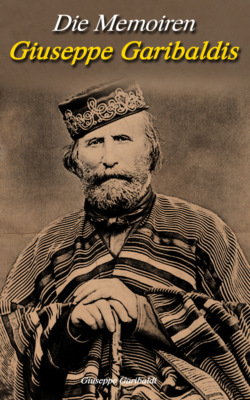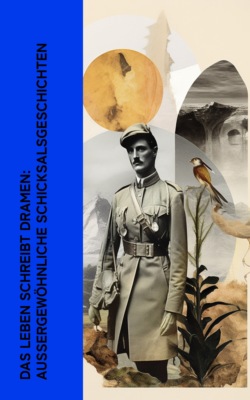Kitabı oku: «The Life of General Garibaldi», sayfa 6
CHAPTER XIV
THE RIVER CAPIVARI – MY NEW CAMP – CANOE VOYAGES TO THE LAKE DOS PATOS – STATE OF THE REPUBLICAN ARMY DECLINING – DEATH OF MY BOSOM FRIEND, ROSETTI – RETREAT – DIFFICULTIES AND SUFFERINGS – LOSSES – ANNA'S EXPOSURE – OUR INFANT – KINDNESS OF THE SOLDIERS
The river Capivari is formed by the confluence of the different outlets of numerous lakes which garnish the northern border of the Province of Rio Grande, between the sea-coast and the eastern side of the chain of Espinasso. It received its name from the Capivari, a species of amphibious animal, very common in the rivers of South America. We made two canoes, and in them made several voyages to the western shore of Lake Patos, transporting both men and provisions. These voyages we performed from the Capivari and the Sangrador de Abreu, one of the streams in that vicinity, which is an outlet of a pond, connecting it with a lake.
In the meantime the situation of the Republican army grew worse and worse. Every day their necessities became more pressing, while, at the same time, the difficulty of satisfying them became greater. The two battles of Taguare and Norte had destroyed the infantry, so that the battalions had become mere skeletons. Prevailing wants produced discontent, and that led to desertions. The inhabitants, as usually happens in long wars, were wearied, and looked with indifference upon the forces of the two parties. In such a state of things the Imperialists made proposals for an arrangement which, although advantageous, considering the circumstances of the Republicans, were not acceptable and not accepted by the most generous portion of the enemy. Their rejection much increased the discontent of the extreme and disgusted party, and finally the abandonment of the siege, and the retreat were decisive. The Canabarro division, of which the marine formed a part, was to begin the movement, and climb the passes of the Serra, occupied by General Labattue. Bento Gonzales, with the rest of the army, was to march behind, covering the movements.
At that time died Rosetti, an irreparable loss to the army, and especially to myself. Having been left with the Republican garrison of Settembrina, which was to march last, he was surprised by the famous Maringue; and that incomparable Italian perished fighting bravely. Having fallen from his horse wounded, he was called on to surrender, – but he sold his life dearly. There is not a spot of ground on earth in which do not lie the bones of some generous Italian, for whose sake Italy ought never to cease from the struggle until free herself. She will feel the want of them in the day when she shall rise to drive the ravens from the corpses which they devour.
The retreat was commenced in the worst season, among the broken ridges of the mountain, in an almost unintermitted rain, and was the most disagreeable and terrible which I had ever seen. We had supplied ourselves with a few cows, which we brought with us, there being no animals among the toilsome paths which we were to travel, made impracticable by the rains. The numerous rivers were extremely swollen, and much of the baggage was carried away by the torrents. The troops marched in the rain, and without food; encamped without food in the rain. Between one river and another, those who were appointed to keep near the cows, had meat, but the others were in a terrible condition, especially the poor infantry, for everything failed them except horse-flesh. There were some dreadful scenes. Many women followed the army, according to the custom of the country, and many children. But few of the latter came out of the forest, and some were picked up by the horsemen, one of whom, here and there, was fortunate enough to save his horse, and with him a poor little creature, left by its dead or dying mother, who had fallen a victim to hunger, fatigue, and cold.
Anna was much distressed by the apprehension of losing her little son, Menotti, who was saved with difficulty, and as if by a miracle. In the most difficult parts of the road, and in crossing rivers, I carried my poor little child, then three months old, in a handkerchief tied round my neck, contriving to keep him warm with my breath. Of about a dozen animals – horses and mules – with which we entered the woods, some of them used for the saddle and some for baggage, there remained only two horses and two mules. The others had tired, and were abandoned. To crown our misfortunes, the guides had mistaken the road; and that was one of the reasons which induced us to cross the terrible woods of Las Antas. The word "Anta" signifies a harmless animal, of the size of an ass, whose flesh is exquisite, and whose hide serves for making many strong and many ornamental articles. This animal, however, I never had the fortune to see. Although the troops continued to proceed, they could not find the end of the piccada; and I remained in the woods, with two tired mules, and sent Anna, with her servant and the child, to endeavor to find a clear place where they might obtain some food for themselves and the animals. The two remaining horses, which were used alternately, with the surprising courage of the mother, overcame every difficulty. She succeeded in getting beyond the piccada, and fortunately found some of the soldiers with a fire, a very rare thing, and then not always to be obtained, on account of the continued rain, and the miserable condition to which we were all reduced. The men warmed some cloths, took the infant and wrapped him in them, and thus resuscitated him. The poor mother who had given up almost every hope of his life, took him again and cherished him with the tenderest care, while the good-hearted soldiers went to seek for some kind of food to restore the exhausted strength of the mother. I labored in vain to save the mules. Being left alone with them, I cut as many as I could of the leaves of the baguara, a species of cane, and gave them to eat; but it was of no use. I was obliged to abandon them, and seek to get out of the forest on foot, and exceedingly fatigued.
Nine days after entering it, the last of the division barely got through the piccada, and only a very few of the horses of the officers were saved. The enemy, who had preceded us in their flight, had left some artillery in the forest of the Antas, which the pursuers were unable to transport, for the want of means, and they were left buried in certain caverns – who knows for how long? In that woody region the storms seemed as if tired out; for, on getting into the open fields of the elevated plain, called the Cima da Serra (or top of the ridge), the troops found good weather. Some oxen, which were discovered there, afforded them a welcome supply of food, and made some amends for the sufferings they had passed through. They then entered the department of Vaccaria, in which they remained several days, waiting for the division of Bento Gonzales, which joined them much broken, and in a miserable state. The indefatigable Maringue, informed of their retreat, had pursued that division and harassed it in every way, aided by the mountaineers, who were always decidedly hostile to the Republicans.
All these things gave Labattue as much time as was required for his retreat and junction with the Imperial army. They arrived, however, almost without men, in consequence of desertions occasioned by the severe and forced march, and privations, and sufferings endured by the other troops. Beside all these, he had an adventure, which deserves to be mentioned here on account of its remarkable nature.
Labattue being obliged to pass in his march through the two forests known by the names of the Mattos or woods of Portugues and Castellano, met in them several tribes of the Bugre Indians, the most savage in Brazil. These, knowing of the passage of the Imperialists, assailed them, laying ambushes in different places in the bushes, and did them much injury, letting us know, at the same time, that they were friends of the Republicans. In accordance with this profession, my comrades and I myself experienced no inconvenience from them on our march; but we saw the poge, or holes, carefully covered with grass, into which the incautious enemy might fall, when the savages would take advantage of his misfortune and assault him. But all these were left open where the Republicans were to pass, that we might not be exposed to the danger.
On one of those days I met a woman, who had been stolen by the savages in her youth, and profited by the opportunity offered by the neighborhood of the troops. The poor creature was in a most pitiable state.
As we had no enemies to fly from or to pursue in those lofty regions, we proceeded slowly on our march, almost entirely destitute of horses.
CHAPTER XV
HUNTING HORSES – CATCHING WILD COLTS – ENTER THE PROVINCE OF MISSIONES – HEAD-QUARTERS ESTABLISHED AT SAN GABRIEL – LOVE FOR MY PARENTS – I TURN CATTLE-DROVER – RESULTS – REACH MONTEVIDEO – TEACH MATHEMATICS – WARLIKE PREPARATIONS – JOIN THE ORIENTAL SQUADRON
The corps of Free Lancers, being entirely dismounted, were obliged to supply themselves with wild colts; and it was a fine sight which was presented almost every day, to see a multitude of those robust young black men, leaping upon the backs of their wild coursers, and rushing across the fields like a thunderstorm. The animal used every exertion to gain his freedom and to throw off his hated rider; while the man, with admirable dexterity, strength and courage, continued to press him with his legs, drawing in his feet against his sides like pincers, whip and drive him, until he at length tired out the superb son of the desert.
In that part of America the colt comes from the field lassoed, and is saddled, bridled, and rode by the domator, or horse-breaker, and in a few days obeys the bit. Experienced men obtain many excellent horses in a short time; but few come out well broken from the hands of soldiers, especially when they are on a march, where neither the necessary conveniences can be obtained, nor the necessary care taken to break them well.
Having passed the Mattos Portuguez and Castellano, we descended into the province of "Missiones," proceeding towards Cruz Alta, its chief town. It is a very small place, but well built, situated on a high plain and in a beautiful position; as fine, indeed, as all that part of the State of Rio Grande. The troops marched from Cruz Alta to San Gabriel, where the head-quarters were established and barracks were constructed for the encampment of the army. I built a cottage, and spent some time in it with my little family; but six years of a life of dangers and sufferings, far from the company of old friends, my father and mother, from whom I had no news, among that people, isolated by the war with the empire, made me wish to return to some place where I might obtain information concerning my parents. I now found that although, amidst the scenes of bustle and trial through which I had passed, I had been able to banish the recollection of their affection for a time, my love for them remained lively and warm in my heart. It was necessary to improve my circumstances, for the benefit of my wife and child, and I determined to make a journey to Montevideo, even if but for a short time. I asked and obtained permission from the President, who also allowed me to take a small herd of young cattle, to pay the expenses of travelling.
And here I took up the business of a cattle-drover, or trappiere. In an Estancia, called the Corral del Piedras, under the authority of the Minister of Finance, I succeeded in collecting, in about twenty days, about nine hundred cattle, after indescribable fatigue. With a still greater degree of labor and weariness they were driven towards Montevideo. Thither, however, I did not succeed in driving them. Insuperable obstacles presented themselves on the way, and, more than all, the Rio Negro, which crossed it, and in which I nearly lost all this capital. From that river, from the effects of my inexperience and from the tricks of some of my hired assistants for managing the drove of animals, I saved about five hundred of the cattle, which, by the long journey, scarcity of food and accidents in crossing streams, were thought unfit to go to Montevideo.
I therefore decided to "cuercer" or "leather" them, – that is, to kill them for their hides; and this was done. In fact, after having passed through indescribable fatigue and troubles, for about fifty days, I arrived at Montevideo with a few hides, the only remains of my nine hundred oxen. These I sold for only a few hundred dollars, which served but scantily to clothe my little family.
In Montevideo I spent some of my time in the house of my friend Napoleon Castellani, to whose kindness, and the courtesy of his wife, I felt much indebted. I acknowledge my obligations also to my dear friends, Giovanni Battista Cuneo and Giovanni Risso. Having a family, but my means being exhausted, I felt it necessary to provide for the subsistence of the three individuals of whom it consisted. Other people's bread always seemed to me bitter, whenever in my diversified life I have found it necessary to partake of it; and I have been so happy as never to be dependant on any friend. Two occupations, of small profit, it is true, but which would afford me a subsistence, I assumed for a time. They were those of a broker and a teacher of mathematics, given in the house and to the pupils of the estimable instructor, Signor Paolo Semidei. This manner of life I pursued until I entered the Oriental squadron.
The Rio Grande question was approaching a settlement, and there was nothing more to be thought on that subject. The Oriental Republic soon offered me employment, and I accepted it.
I was appointed to proceed on an expedition, the results of which, through either ignorance or malignity, proved ruinous.
With the sloop Constitucion, of eighteen guns, the brig Terceira, of two eighteen pounders, and a transport, the schooner Procida, I was ordered to proceed to Corrientes, an allied province, to assist in their military operations against the forces of Rosas.
The Oriental Republic of the Uruguay, like the greater part of the Republics of South America, was a prey to intestine disputes; and the occasion then was the pretension of two Generals to the Presidency, viz: Rivera and Ouribes. Rivera, being more successful, succeeded after several victories, in driving away Ouribes, and gained possession of the power which he had held. The latter, being expelled, took refuge in Buenos Ayres, where the Dictator, Rosas, received him, together with many Oriental emigrants, and employed them against his enemy, who were then under the command of General Lavalle. Lavalle being conquered, the ferocious Ex-president of Montevideo undertook to regain his lost power in his own country. In that Rosas found the object most agreeable to his wishes; that is, the destruction of the Unitarians, or Centralists, his mortal enemies, who were supported by the Oriental State; and the ruin of a neighboring Republic, his rival, which disputed with him the supremacy of the immense river, by throwing into her bosom the most terrible elements of civil war.
At the time when I embarked on the river, the Oriental army was at San Jose de Uruguay, and that of Ouribes at La Bajada, the capital of the province of Entre Rios, both making preparations for a great conflict. The army of Corrientes then made arrangements for uniting with the Oriental. I was to go up the Parana to Corrientes, pass over a distance of more than six hundred miles, between two banks occupied by the enemy, where I would be unable to anchor, unless at islands and desert places.
CHAPTER XVI
ORIGIN OF THE WAR BETWEEN MONTEVIDEO AND BUENOS AYRES. – CHARACTER AND CONDUCT OF ROSAS, OURIBES – THE CENTRALISTS, CALLED UNITARIANS, OPPOSED TO THE REPUBLICANS
As has been said, the war in Montevideo was caused by the personal ambition of the two generals, Ouribes and Rivera, who were aspirants for the Presidency of the republic. The former was defeated by the latter, about the year 1840, and obliged to emigrate to Buenos Ayres.
At that time Rosas, the tyrant of Buenos Ayres, was engaged in war with the Centralists, or Unitarians, who were the national and liberal party, and were led by Generals Lavalle and Paz. Rosas received Ouribes and many of his partizans, and gave them immediate employment in his own army, while he conferred the supreme command of it upon the emigrant General. Ouribes, being able to bring many reinforcements to the tyrant's army, which was already strong, defeated Lavalle, who died in the upper provinces of the Argentine Republic (I think Mendoza,) in a surprise. General Paz, by intrigues and dissensions, was obliged to abandon the struggle, after the brilliant victory of Caguazú, and to return to Montevideo, where the greater part of the Centralists who had fought against Rosas had retreated.
The Argentine Republic being pressed by enemies, Ouribes descended towards Montevideo, and established his camp at Bajada, the capital of the province of Entre-Rios, having under his command an imposing army, and meditating with Rosas, the invasion of the State of Montevideo. Rivera was then on the left bank of the Uruguay, preparing and receiving all the forces which he could dispose of, and doubtless expecting to be attacked.
Wise would have been the resolution to await the enemy in his own positions; but, having much confidence in himself, and strengthened by the junction with the army of Corrientes, he made arrangements to cross the river, and seek the enemy. The Oriental and Corrientes armies amounted to ten thousand men. Ouribes had fourteen thousand, and was much superior in infantry and artillery.
The battle was short; and the combined armies were entirely defeated on the Arroyo Grande. Ouribes passed the Uruguay, invaded the territory of Montevideo, and then laid siege to the capital.
The catastrophe of Arroyo Grande, and the certainty that the implacable ex-president would come, meditating terrible revenge, stimulated the population of the State of Montevideo to take up arms en masse and repel the invasion by force. It should here be observed, that the war had changed its character, and it was no longer a personal consideration in favor of Rivera which induced the people to take up arms; but the fear of becoming subject to the depredations and excesses of a foreign and barbarous enemy, led them to fight for the independence of the country.
The beginning of patriotism, which then animated the people, was the same which led them to so many heroic deeds, and to sustain the most desperate of struggles, at the cost of unheard of sacrifices. Then began the glorious contest carried on by the Montevideans, which still continues, and which will astonish the world, when its events are exactly known.
General Paz, reduced to Montevideo, after the unfortunate occurrences in the Argentine State, was received with acclamation by the government and people, as general of the nascent army; and to him are certainly due the beginnings of bravery and discipline by which it was distinguished, as well as the system of defence which was adopted.
Rivera kept the field, made skilful movements, and was defeated by Ouribes at India Muerta. The errors of Rivera and his conflicts completed his discredit, and entirely removed him from the scene of events. He is now an emigrant in Rio Janeiro, and I do not think his influence can produce any disturbance on the Rio de la Plata.
The question of Montevideo, therefore, reduces itself to the following, at the present epoch (1850):
Rosas, the tyrant of Buenos Ayres, and chiefly interested in the humiliation of Montevideo, maintains an army in besieging that city, in order to destroy it. That army is commanded by a Montevidean, who wishes, at any cost, to command in his country; and the people of Montevideo are fighting against that army, because they are not willing to submit to the hated and abominated domination of Rosas and Ouribes.
Indignant at the sight of such a scene of arrogant and inhuman oppression as that presented in Buenos Ayres and the Argentine Republic, I was impelled to present myself in opposition to the Dictator, and to adopt the cause of the injured as my own. Having mingled with the people in my own country, and all my experience, short as it was, having taught me to sympathize with them, against the old and hereditary aristocracy of Europe, I could not regard with indifference the upstart oppressor, Rosas, so treacherous to the principles of equality and republicanism, which he pretended to love, while violating them, in the grossest manner, for his own insatiable ambition. Notwithstanding the depressed condition of the true patriot party in Montevideo, on my arrival in that city, circumstances ere long proved favorable; and on their beginning to renew their movements, I appeared among them with my native activity and zeal.
I conceived the idea of performing an important service for my own country, while devoting myself to that in which I was residing. I soon perceived that the spirit and character of the Italians needed great efforts, to raise them from the depressed state in which they existed in fact, as well as in the opinion of the world; and I was determined to elevate them, by such a practical training as alone could secure the end.
By means of Napoleon's treachery to the cause of liberty, which he had pretended to espouse on entering Italy, that unhappy country had been led to a ruin more deep and complete than any of the other of his victims; for she had been, more than any other, reduced to spiritual slavery, as well as temporal. The allies (with Protestant Prussia and England among them,) had restored the papacy along with monarchy and aristocracy; and yet the Italians were vilified as a degenerate race, and falsely accused of having brought their misfortunes upon themselves, by their ignorance, fanaticism and pusillanimity.

